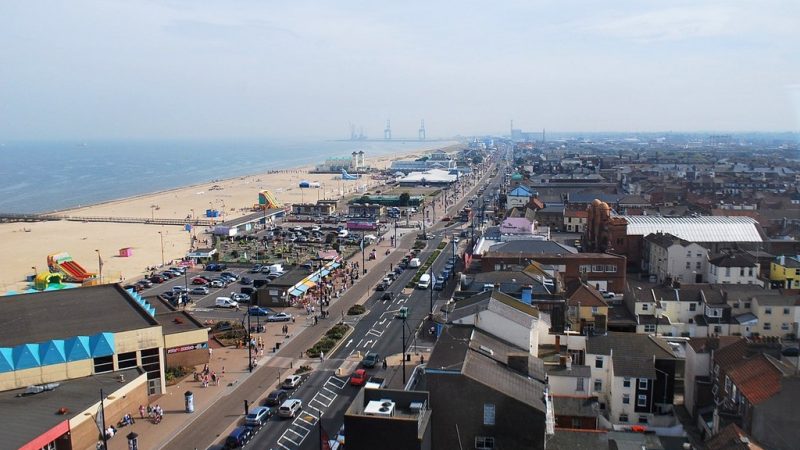'For 13 years, Conservative governments have run down coastal and rural communities.'

For 13 years, Conservative governments have run down coastal and rural communities. Public perceptions of seaside and rural idylls often do not match the reality experienced by those who live there. Many people endure low pay and insecure work, a higher cost of living, poor quality housing, and fewer accessible public services. For those who stay, it often means living in poverty. Every year, thousands of young people are forced to leave in pursuit of education, jobs and opportunities. People looking to raise a family or move home to be closed to loved ones are unable to do so. Some smaller rural and coastal communities are becoming unviable as a result.
Before the pandemic and the current cost-of-living crisis, the Financial Conduct Authority found 54 per cent of adults in rural areas were financially vulnerable – and both crises will have only made things worse. The Chief Medical Officer for England found coastal towns have some of the worst health and wellbeing outcomes in the country, with lower life expectancy and higher rates of physical and mental health conditions than average. Access to affordable, secure and high quality housing is made more difficult by the proliferation of holiday lets and second homes in both coastal and rural communities, combined with a lack of new homes being built.
By neglecting coastal and rural areas, the government has held back the whole country. For example, the national economy would be £54bn larger if the rural economy alone was as productive as the rest of the country. Often, growing industries need the space, or natural resources that coastal and rural areas can offer. But this potential has been ignored by Conservative governments, with an economic model that primarily supports London, its financial sector, and a handful of other communities and industries in the south east.
This hasn’t gone unnoticed. People living by the coast or in the countryside feel their communities are left behind and ignored in the national conversation. The Fabian Society and YouGov asked ‘is your local area prioritised by politicians in Westminster when decisions are made about the future of the country’, 70 per cent of respondents in rural communities and 63 per cent of respondents in coastal towns said it wasn’t.
Furthermore, when asked if their area was better or worse off than most others, more respondents in both coastal and rural areas said it was worse off on eight issues: the availability of public transport, affordability of public transport, the affordability of housing, access to good healthcare, access to a thriving high street, the number of good jobs, opportunities for young people, and the amount of public funding spent. For respondents in rural communities (though not coastal), they felt worse off on another two issues: leisure activities in the local area, and internet availability.
The scale of coastal and rural disaffection is significant – and creates space for progressives to develop a truly ‘one nation’ agenda to tackle the challenges facing these communities and forge a policy platform that works for all of Britain. It would contrast sharply with the Conservatives’ ‘divide and rule’ government that has failed coastal and rural communities.
This agenda must start with the things that people value, and which progressives should have no difficulty in supporting. Our research found that people living in coastal and rural places prioritise home, security, stability, and family. These are shared priorities for towns and cities too. Appealing to these values will ensure progressives are seen to be in touch with coastal and rural areas, in sharp contrast to recent Conservative Prime Ministers.
Policy must also reflect coastal and rural realities. Too often, sparsity and isolation is placed in the ‘too difficult’ box for public services and infrastructure, so coastal and rural communities see vital funding and provision cut. Instead, Gordon Brown’s Commission on the Future of the UK proposed ‘minimum standards for every citizen, not matter where they live of public services’; others have written about universal basic services or universal basic infrastructure.
Progressives must grapple with the practicalities of making these concepts real for people living in coastal and rural areas. This will require compromise and innovation. Service provision can be difficult to deliver sustainably in smaller or sparser communities, whether that’s a job centre, a bank or health services, if each stood on their own and in their current form. But co-locating such services, new delivery models and digital provision, could help make the business case work.
For too long, the Conservatives have ignored coastal and rural areas. Progressives cannot repeat that mistake. The country as a whole needs the untapped potential of our coastal and rural communities to grow the economy, deliver security for all, fix our public services, and tackle climate change. We can only tackle our biggest challenges by pulling together.
Ben Cooper (@BenCooper1995) is a senior researcher at the Fabian Society
Left Foot Forward doesn't have the backing of big business or billionaires. We rely on the kind and generous support of ordinary people like you.
You can support hard-hitting journalism that holds the right to account, provides a forum for debate among progressives, and covers the stories the rest of the media ignore. Donate today.



